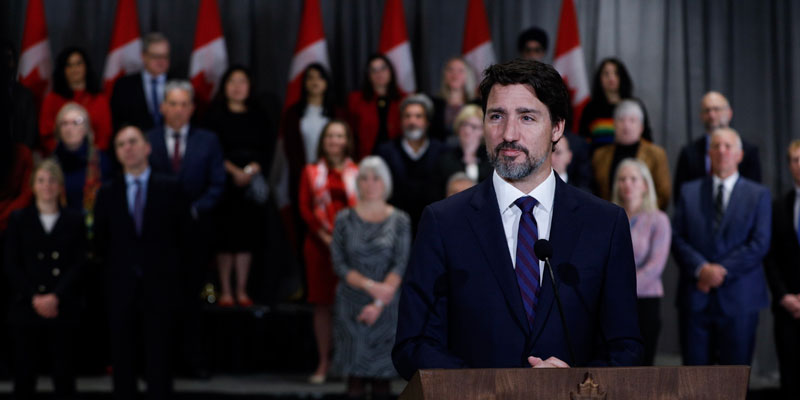The real election losers—balance sheet, health care, federalism

Several political failures have made the headlines post-election including the Liberal failure to secure a majority, the decline in the Tory seat count, the NDP’s inability to materially increase its seat count, the collapse of the Green vote and the failure of the leader of the PPC to win back his old seat. Less covered in the media have been the real losers in the federal election—namely, Canada’s balance sheet, federalism and progress on a genuine discussion about health-care reform.
The Liberal minority government (bolstered by the NDP) will clearly spend more money financed by yet more debt. Consider that before COVID, specifically Budget 2019, federal spending for 2019-20 was planned to reach $329.4 billion with a deficit of $19.8 billion.
Budget 2021, the pre-election financial plan outlined federal spending of $403 billion (excluding interest costs) next year (2022-23), very little of which is linked to COVID. Under the plan, federal spending is expected to reach $426.7 billion by 2025-26, with the total federal debt exceeding $2.0 trillion.
The Liberal platform proposed an additional $78 billion in new spending over the next five years, most of which will be financed by debt at a time when the independent Parliamentary Budget Officer estimates the federal government will not balance the overall budget until 2070.
The NDP proposed new additional spending over the same time period of $214 billion. It’s safe to assume that with a minority Liberal government already predisposed to spending coupled with the NDP as their likely partner in governing, the Liberal’s additional $78 billion is the minimum, which means a further deterioration in the country’s finances.
Another big loser in the election was the very concept of Canadian federalism. A core idea behind federalist countries such as Canada is that each level of government has a fairly well-defined and understood set of responsibilities. The three main national parties all proposed increased federal involvement in areas of clear provincial responsibility including health care, childcare and housing. The lessons from our own history is that Canadians are best served when Ottawa reduces its involvement in areas of provincial jurisdiction and affords them the flexibility and autonomy envisioned in the Constitution. Unfortunately, the clear trend from this election is more Ottawa and less provinces.
Finally, and related to the idea of federalism, is how the federal election set back the important goal of engaging Canadians in an honest and open discussion on the need for the fundamental reform of health care. Most of the major parties bought into the fallacy that part of the problem is that we don’t spend enough on health care, and the progressive parties vilified the Tories for even considering an increased role for the private sector in our public system.
These, and other falsehoods related to the reality of Canada’s health-care system, set back the path of reform, which must be premised on honest public engagement. Consider, for instance, that of the 28 industrialized countries with universal health care, Canada spends the second-highest (adjusted for age) as a share of the economy.
But on measure after measure of performance, Canada ranks in the middle or bottom of comparable countries. For example, on the number of doctors per 1,000 residents, Canada ranks 26th of 28 countries, and 25th out of 26 on the number of acute care beds. On key indicators of wait times, Canada is consistently the lowest-ranked among comparable countries with universal health care.
Moreover, we have experience from the birthplace of medicare, Saskatchewan, regarding the benefits of harnessing the private sector in health care. The province experimented using private clinics to deliver publicly covered services between 2010 and 2014. The result was a marked reduction in wait times and on average, procedures cost 26 per cent less than their public-sector equivalents.
Contrary to the campaign rhetoric, money is not the problem in Canada’s health-care system. Rather it’s how we’ve structured it. There are many options available for reform based on the experiences of countries such as Switzerland, the Netherlands, Germany and Australia, to name a few.
While the political losers are grabbing headlines post-election, the real losers are Canada’s balance sheet, our federalist system of governance and the ability to genuinely discuss reforming our ailing health-care system.



